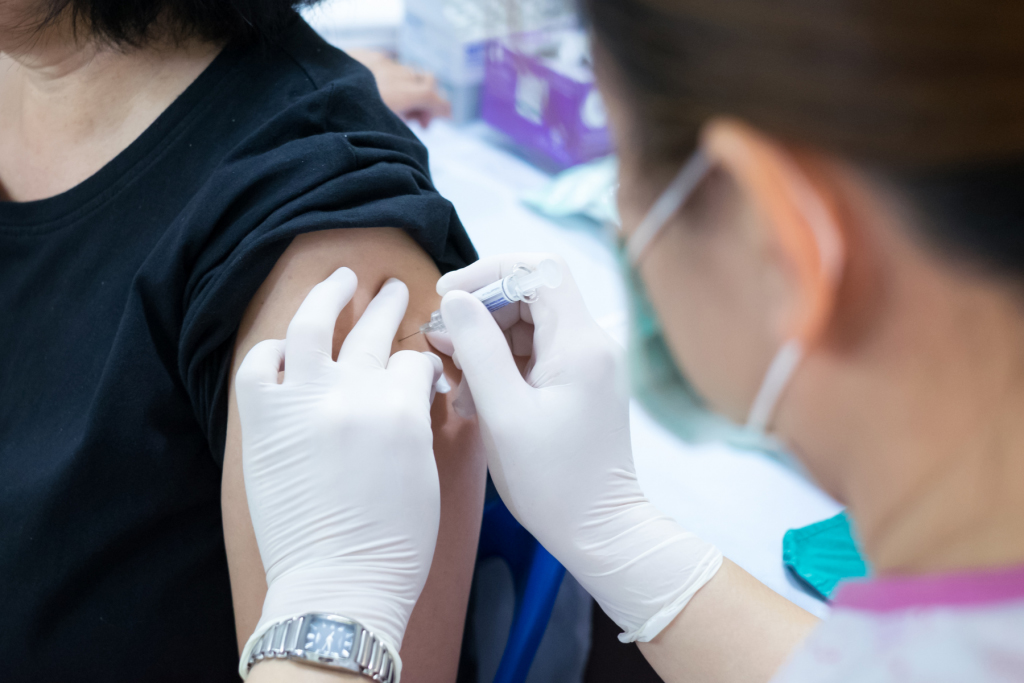How do I prepare for my COVID vaccine?
You may be wondering how you should best prepare for the vaccine to maximize its effects. Here's what you need to know.

As of this week, over 75 million people in the United States have been fully vaccinated, paving the way for a return to normalcy. With about 3.4 million shots going into arms each day, experts predict the country will achieve herd immunity by the fall.
You may already know friends, family, or even some of our team members who have already received their vaccines. You may even be counting down the days until you can get it, too. This may lead you to wonder how you should best prepare for the vaccine to maximize its effects.
What side effects may I experience?
The first thing you should be aware of is the likelihood of feeling side effects within 24 hours of receiving your dose. These often include pain and discomfort in the arm you received the shot, fatigue, fever, muscle pain, chills and nausea. However, some people may experience rare allergic reactions, which is why most vaccination locations ask people to sit and wait in a waiting room for at least 15 minutes after receiving your shot.
Effects also tend to intensify after receiving the second shot, so we recommend you schedule your second shot (if applicable) appropriately. Try to take it on a Friday or Saturday, or take a day of from work the day after. This will allow you to adequately rest and recover from any symptoms you may have.
Experiencing any of the common side effects is no reason to worry — it is just a sign that your body is working to build protection against the coronavirus. On the flip side, if you don’t experience any side effects, that does not mean the vaccine did not work: you will still be protected.
To alleviate any discomfort you feel in your arm, the Center for Disease Control recommends applying a clean, wet washcloth on the area and to move your arm around. The CDC also recommends drinking plenty of water and dressing lightly to combat fever. If any of the side effects persist after a few days, you should contact your healthcare provider.
Decreasing the severity or likelihood of side effects
Now, in order to decrease the severity or likelihood of side effects, you should avoid drinking alcohol the night before and get a good night’s sleep to keep your body alert and well-rested the next day. You should also avoid taking anti-inflammatory medications leading up to the vaccine, such as aspirin, ibuprofen or other types of pain relievers. These medications may interfere with your immune response, weakening its reaction to the vaccine.
Other medications to look out for are steroids; if you take steroids for chronic conditions, that should not pose an issue. But if you are taking steroid injections, you should discuss taking the vaccine with your health provider first. Additionally, if you are also in the process of taking another vaccine, you should leave a 14-day buffer period in between taking the different vaccines. This will let your body mount an adequate response to both triggers.
However, most other medications are safe and will not interact with the vaccine, such as those for blood pressure, diabetes, asthma and other common conditions.
Next steps
Both the Moderna and Pfizer mRNA vaccines are about 95% effective at preventing COVID-19 two weeks after the second dose. However, this does not mean that all precautions should go out the window. The CDC still recommends against participating in medium or large gatherings, both inside or outside, as well as interacting with non-vaccinated people indoors without masks.
Yet the CDC also lessened other restrictions for those who are vaccinated: they are allowed to be indoors with other vaccinated people, for one. They can also visit other unvaccinated households whose occupants are not at risk of serious disease. Traveling domestically without a pre- or post-travel test is also an option, as well as not having to quarantine upon arrival. For a full overview of the CDC’s recommendations for people fully vaccinated, you can find out more on their website.
RECENT POSTS
CATEGORIES

> Privacy Practices
> Terms and Conditions
Copyright © Performance 2022.
All rights reserved.
JOIN OUR COMMUNITY
Sign up for our mailing list to learn more about Performance, stay up-to-date on our offerings, and receive our newsletter.
Digital Marketing by Rebel Interactive Group
